
Twenty percent of the Americans who have died of COVID since 2020 have been older and disabled adults residing in nursing homes—even though they make up less than one percent of the overall US population. Something about this catastrophic loss of life in government-sponsored facilities never added up.
Until now. In American Eldercide, activist and scholar Margaret Morganroth Gullette investigates this tragic public health crisis with a passionate voice and razor-sharp attention to detail, showing us that nothing about it was inevitable. Gullette argues that it was our collective indifference, fueled by ageism, that prematurely killed this vulnerable population, compounded by our own panic about aging and a bias in favor of youth-based decisions about lifesaving care. Walking us through the decisions that led to such discriminations, revealing how governments, doctors, and media reinforced ageist biases, and collecting the ignored voices of the residents who survived, Gullette helps us understand the workings of what she persuasively calls an eldercide.
The compassion this country failed to muster for the residents of our nursing facilities motivated Gullette to pen an act of remembrance and a call to action that aims to prevent similar outcomes for all those who will need long-term care.

You are old, ill, in pain, and your doctor asks you what you want to do about it. You may be uncertain but you're definitely not alone. By the year 2020, some 50 million Americans will be over sixty-five, and as the nation ages we must all ask what we ought to do about the health and medical care of our elderly. Our response will have profound consequences, not just for individuals and families, but for society as a whole. This book helps us start to form an answer.
To make decisions about medical care in old age, we need to know more about the reality of being elderly and sick, and Choosing Medical Care in Old Age gives us the opportunity. Muriel Gillick, a noted physician who specializes in the care of the elderly and in medical ethics, presents a panoply of stories drawn from her clinical experience. These encounters, with the robust and the frail, the demented and the dying, capture the texture of the experience of being old and faced with critical medical questions. From the stories of older people struggling to make choices in the face of acute illness, stories that are often poignant and sometimes tragic, Gillick develops broad guidelines for medical decision–making for the elderly. Within this framework, she confronts particular concerns and questions. When are certain procedures too burdensome to be justified? What are unacceptable risks? Should family members serve as exclusive spokespersons for relatives who can no longer speak for themselves? Gillick's bold and personal prescription for medical care for the elderly calls for a change in the way medicine is understood and practiced, as well as for changes in the institutions that serve the elderly, such as hospitals and nursing homes. An intelligent and deeply compassionate inquiry into the difficult issues and real–life dilemmas raised by current practices, her book offers a first step toward those changes.

Community Life Among the Urban Elderly
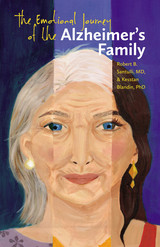
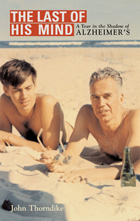
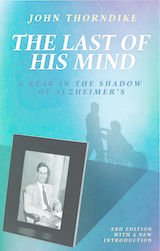
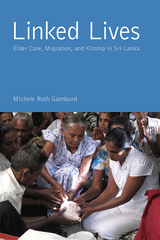
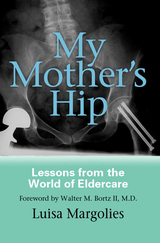

We all hope that we will be cared for as we age. But the details of that care, for caretaker and recipient alike, raise some of life’s most vexing questions. From the mid-nineteenth to the mid-twentieth century, as an explosive economy and shifting social opportunities drew the young away from home, the elderly used promises of inheritance to keep children at their side. Hendrik Hartog tells the riveting, heartbreaking stories of how families fought over the work of care and its compensation.
Someday All This Will Be Yours narrates the legal and emotional strategies mobilized by older people, and explores the ambivalences of family members as they struggled with expectations of love and duty. Court cases offer an extraordinary glimpse of the mundane, painful, and intimate predicaments of family life. They reveal what it meant to be old without the pensions, Social Security, and nursing homes that now do much of the work of serving the elderly. From demented grandparents to fickle fathers, from litigious sons to grateful daughters, Hartog guides us into a world of disputed promises and broken hearts, and helps us feel the terrible tangle of love and commitments and money.
From one of the bedrocks of the human condition—the tension between the infirmities of the elderly and the longings of the young—emerges a pioneering work of exploration into the darker recesses of family life. Ultimately, Hartog forces us to reflect on what we owe and are owed as members of a family.
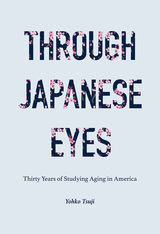
Through Japanese Eyes offers an ethnography of aging in America from a cross-cultural perspective based on a lengthy period of research. It illustrates how older Americans cope with the gap between the ideal (e.g., independence) and the real (e.g., needing assistance) of growing older, and the changes the author observed over thirty years of research.
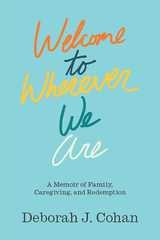
ESS Public Sociology Award
Recommended Book in Domestic Violence by DomesticShelters.org
How do you go about caregiving for an ill and elderly parent with a lifelong history of abuse and control, intertwined with expressions of intense love and adoration? How do you reconcile the resulting ambivalence, fear, and anger?
Welcome to Wherever We Are is a meditation on what we hold onto, what we let go of, how we remember others and ultimately how we’re remembered. Deborah Cohan shares her story of caring for her father, a man who was simultaneously loud, gentle, loving and cruel and whose brilliant career as an advertising executive included creating slogans like “Hey, how ‘bout a nice Hawaiian punch?” Wrestling with emotional extremes that characterize abusive relationships, Cohan shows how she navigated life with a man who was at once generous and affectionate, creating magical coat pockets filled with chocolate kisses when she was a little girl, yet who was also prone to searing, vicious remarks like “You’d make my life easier if you’d commit suicide.”
In this gripping memoir, Cohan tells her unique personal story while also weaving in her expertise as a sociologist and domestic abuse counselor to address broader questions related to marriage, violence, divorce, only children, intimacy and loss. A story most of us can relate to as we reckon with past and future choices against the backdrop of complicated family dynamics, Welcome to Wherever We Are is about how we might come to live our own lives better amidst unpredictable changes through grief and healing.
Questions for Discussion (https://d3tto5i5w9ogdd.cloudfront.net/wp-content/uploads/2020/05/11140346/Cohan_Discussion.docx)
READERS
Browse our collection.
PUBLISHERS
See BiblioVault's publisher services.
STUDENT SERVICES
Files for college accessibility offices.
UChicago Accessibility Resources
home | accessibility | search | about | contact us
BiblioVault ® 2001 - 2024
The University of Chicago Press









